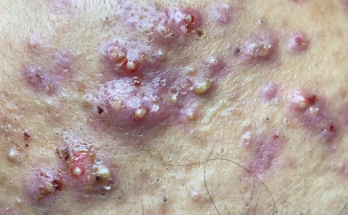The Multifaceted World of Health Treatment: A Holistic Approach to Wellness
Our journey towards optimal health is a complex one, navigating a landscape of diverse treatment approaches. This blog post delves into the fascinating world of healthcare, exploring the strengths and considerations of various methodologies, from conventional medicine to holistic practices, and highlighting the growing importance of integrative care.
Conventional Medicine: The Foundation of Modern Healthcare
Conventional medicine, also known as allopathic or biomedical medicine, forms the bedrock of modern healthcare. Its strength lies in its rigorous scientific foundation, utilizing evidence-based research to diagnose and treat illnesses.
Pharmacological Interventions: The Power of Medications
From antibiotics combating bacterial infections to antihypertensive drugs managing blood pressure, medications are a cornerstone of conventional treatment. Years of research and stringent clinical trials underpin their development and ensure efficacy and safety.
Surgical Procedures: Precision and Innovation
Surgical interventions remain crucial for addressing conditions requiring physical repair or removal, such as appendicitis, fractures, and various cancers. Remarkable advancements in minimally invasive techniques have significantly improved recovery times and reduced complications.
Radiation and Chemotherapy: Targeted Cancer Treatments
Radiation therapy harnesses high-energy particles to target and destroy cancer cells, while chemotherapy employs drugs to inhibit the rapid cell division characteristic of cancerous growth. While both treatments can have side effects, ongoing research continuously strives to enhance their specificity and minimize adverse impacts.
Physical Therapy: Restoring Function and Mobility
Physical therapy plays a vital role in rehabilitation, helping patients regain mobility and function after injury or surgery. Through targeted exercises, manual therapy, and the application of modalities like heat and cold, physical therapists facilitate pain relief and improved movement.
Alternative Medicine: Exploring Non-Conventional Approaches
Alternative medicine encompasses a range of therapies that deviate from conventional practices, often emphasizing natural healing and the body’s innate ability to self-repair.
Ayurveda: The Ancient Wisdom of India
Originating in India, Ayurveda is a holistic system focusing on balancing the body’s energies (doshas) through personalized treatments. These encompass herbal remedies, dietary adjustments, yoga, and meditation, promoting harmony and disease prevention.
Traditional Chinese Medicine (TCM): Balancing the Qi
Traditional Chinese Medicine, with its emphasis on balancing the body’s vital energy (Qi), incorporates techniques such as acupuncture, herbal medicine, and tai chi. Acupuncture, in particular, utilizes thin needles inserted into specific points to stimulate energy flow and promote healing.
Homeopathy: The Principle of “Like Cures Like”
Homeopathy employs highly diluted substances, based on the principle of “like cures like,” to stimulate the body’s healing response. It addresses a broad spectrum of conditions, from chronic illnesses to acute ailments.
Chiropractic Care: Focusing on the Musculoskeletal System
Chiropractic treatment concentrates on diagnosing and managing musculoskeletal disorders, primarily those affecting the spine. Techniques include spinal manipulation and adjustments to alleviate pain and improve function.
Herbal Medicine: The Power of Plants
Herbal medicine, one of the oldest forms of medicine, utilizes plant-derived substances for therapeutic purposes. Many modern pharmaceuticals have their origins in plant compounds, highlighting the enduring significance of herbal remedies.
Holistic Health: Integrating Mind, Body, and Spirit
Holistic health embraces a comprehensive approach, considering the interconnectedness of the body, mind, and spirit in the pursuit of optimal wellness. It effectively integrates conventional, alternative, and lifestyle practices for a truly holistic outcome.
Mind-Body Therapies: The Connection Between Mind and Physical Health
Practices such as meditation, yoga, and tai chi emphasize the crucial mind-body connection. These techniques effectively reduce stress, enhance mental clarity, and improve physical flexibility and strength.
Nutritional Therapy: The Foundation of Well-being
Nutritional therapy emphasizes the fundamental role of diet in maintaining health. By focusing on balanced nutrition, whole foods, and personalized dietary plans, it contributes significantly to disease prevention and overall well-being.
Massage Therapy: Relaxation and Pain Relief
Massage therapy manipulates soft tissues to alleviate pain, reduce stress, and promote relaxation. It’s effective in treating various conditions, including muscle tension, chronic pain, and anxiety.
Aromatherapy: The Healing Power of Scents
Aromatherapy utilizes essential oils extracted from plants to positively influence both physical and emotional health. Inhalation or topical application of these oils can alleviate symptoms such as anxiety, insomnia, and pain.
Integrative Medicine: Bridging the Gap
Integrative medicine represents a powerful synergy, combining conventional medical treatments with complementary therapies to address the multifaceted needs of each patient.
Collaborative Care: A Team Approach to Healing
Integrative medicine fosters a collaborative environment, involving healthcare providers from various disciplines working together to devise comprehensive treatment plans. This ensures holistic consideration of every aspect of the patient’s health.
Personalized Treatment Plans: Tailored to Individual Needs
Treatment plans are carefully tailored to individual needs, preferences, and health conditions, maximizing patient satisfaction and improving outcomes.
Preventive Care: Proactive Health Management
Integrative medicine strongly emphasizes preventive care, promoting healthy lifestyle choices, regular screenings, and early intervention to prevent disease and maintain optimal health.
Patient Education: Empowering Informed Decisions
Educating patients about their health conditions and treatment options is paramount. Informed patients are better equipped to engage in their care and make decisions aligned with their values and preferences.
Challenges and Considerations
While the integration of various treatment modalities offers significant benefits, certain challenges remain. These include the need for robust scientific evidence to support alternative therapies, standardization and regulation of these therapies, addressing cultural acceptance and accessibility issues, and managing the costs involved. Overcoming these challenges will further enhance the efficacy and accessibility of integrative healthcare.
Conclusion: Embracing a Holistic Future
The future of health treatment lies in embracing a holistic approach, integrating the strengths of conventional and complementary therapies. By addressing the physical, mental, and emotional aspects of health, healthcare providers can deliver comprehensive care that empowers individuals to achieve their optimal well-being. As the healthcare landscape evolves, a patient-centered, integrative approach will undoubtedly play an increasingly important role in fostering a healthier and more vibrant future.



